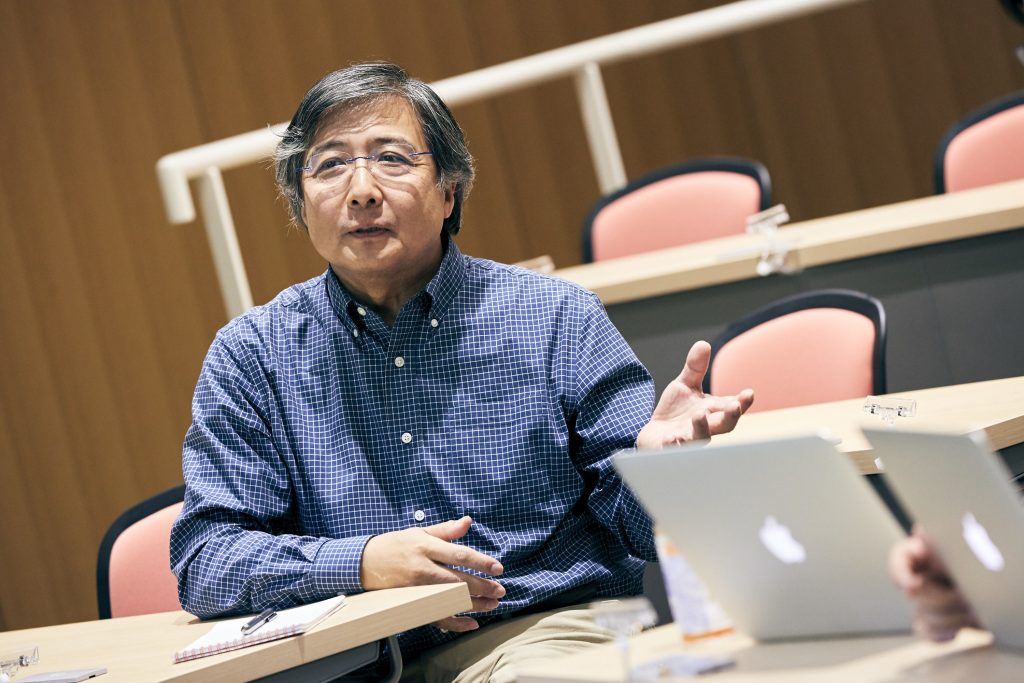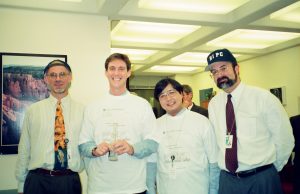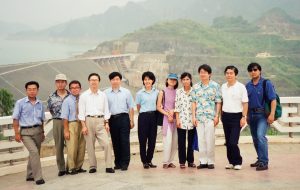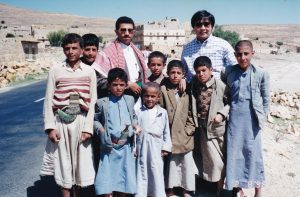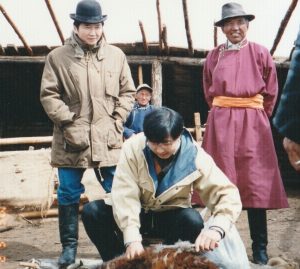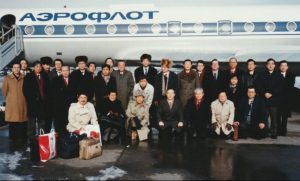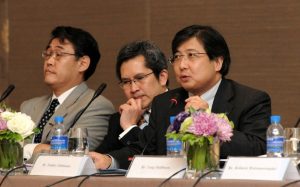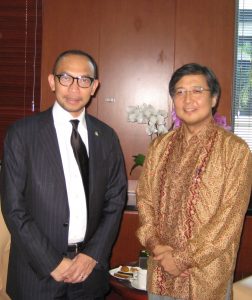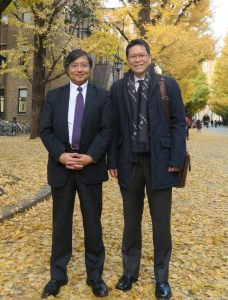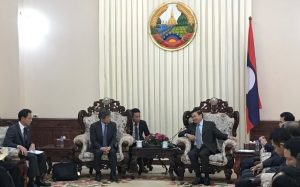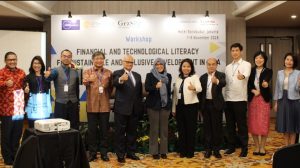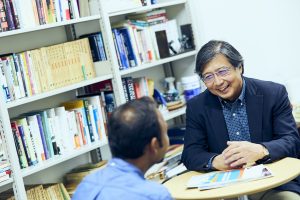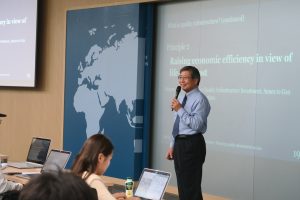Whenever I interact with students, I encourage them to take an interest in real-world issues and form their own opinions. My personal experience shows that it is challenging to fully understand theories just by reading textbooks and writing papers, as theory is the condensed essence of reality. Conversely, the recommended approach can stimulate research underpinned by genuine motivation with real-world relevance. GraSPP offers an excellent opportunity to spend time with a broad range of people, as its atmosphere represents a microcosm of the global community. We need aspiring public policy professionals who can bridge the gap between theory and practice to address challenges facing us worldwide and in local communities.
When I started thinking about my ideal future career path as an undergraduate 40 years ago, I was attracted by the idea of seeking a career where I would move back and forth between international organizations and academia. My dream was to become a diplomat or international civil servant. I earned my first bachelor’s degree in Latin American Studies from the Tokyo University of Foreign Studies and then enrolled in the Faculty of Economics at The University of Tokyo for a second bachelor’s degree to broaden my knowledge.
I was fortunate to encounter a seminar group run by a renowned economics professor Hirofumi Uzawa, where my peers and the professor inspired me academically and personally. However, the sheer brilliance of the professor and some of my peers overwhelmed me and convinced me to stop pursuing an academic career.

Giving up on academia, I decided to look for a job in international finance. Eventually, I joined the Export-Import Bank of Japan (reorganized as JBIC afterward). Ironically, for the first three years, my job was doing research at the bank’s research department. After a while, I received the bank’s sponsorship for a graduate degree. I spent a year in the United States earning a master’s degree in economics after taking first-year courses in the doctoral program at the University of Wisconsin-Madison.
My second professional assignment was lending operations for Sub-Saharan African countries. Then, in 1990, just before the collapse of the Soviet Union, I was assigned unexpectedly to Japan’s Ministry of Foreign Affairs to be involved in diplomatic work to deal with multilateral development banks, including the European Bank for Reconstruction and Development (EBRD), for almost three years. This assignment began a series of job assignments at various organizations.
Following a one-year engagement in Central Asia as a loan officer back in the bank, I was offered another fixed-term assignment for three years as an economist at the International Monetary Fund (IMF) to deal with debt issues in developing countries. Unexpectedly again, I moved from the IMF to the World Bank in 1998 as an advisor on private participation in infrastructure, nowadays called Public-Private Partnerships (PPPs), to work with government officials in Vietnam and the Philippines.
Following my return to Japan in late 1999, I worked at the Japan Bank for International Cooperation (JBIC) with counterparts in Asian countries in various managerial capacities in country risk assessment, financing, and research. My close ties with professionals in many Asian countries have been maintained since those years.
Now, serving as one of the professors of practice at GraSPP, I have unexpectedly fulfilled my original ambition to work at international organizations and academia. I started teaching at GraSPP as a visiting lecturer in 2010 before becoming a full-time professor in 2013 while maintaining my engagement in policy research and dialogue activities outside academia.
Whenever I interact with students at GraSPP, I encourage them to take an interest in real-world issues and form their own opinions. My experience as a student in the old days shows that it is not easy to fully understand theories just by reading textbooks and writing papers, as theory is the condensed essence of reality. Conversely, the recommended approach can stimulate research underpinned by genuine motivation with real-world relevance.
I hope that GraSPPers will gain in-depth academic knowledge backed by a sense of realism. There is also an excellent opportunity to spend time with a broad range of people, as GraSPP is a microcosm of the global community. We need aspiring public policy professionals who can bridge the gap between theory and practice to address challenges facing us worldwide and in local communities.



